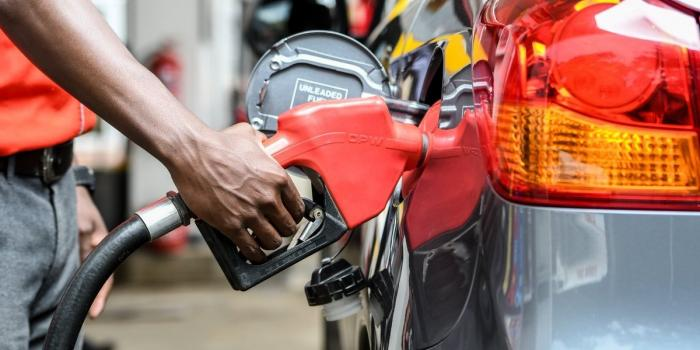Business
KRA INSTALLS DIGITAL SPY IN EVERY GAS STATION: How Your Fuel Receipts Will Soon Report You to Tax Man
Motorists will be required to provide their KRA personal identification numbers (PINs) when purchasing fuel, enabling the authority to track individual consumption patterns and potentially identify discrepancies between declared income and spending habits.

KRA Links eTIMS to Fuel Stations to Monitor Motorists’ Fuel Consumption
The Kenya Revenue Authority (KRA) has rolled out a major digital tracking system by integrating fuel stations across the country with its electronic Tax Invoice Management System (eTIMS).
The eTIMS Fuel Stations System initiative aims to monitor petroleum consumption patterns while cracking down on tax evasion in the sector.
Under the new system, every fuel purchase at stations nationwide will generate an eTIMS receipt or electronic notice, giving the tax authority unprecedented visibility into fuel transactions.
Motorists will be required to provide their KRA personal identification numbers (PINs) when purchasing fuel, enabling the authority to track individual consumption patterns and potentially identify discrepancies between declared income and spending habits.
“To streamline VAT on petroleum products, KRA is in the preliminary phase of implementing electronic tax invoicing at fuel stations through eTIMS fuel stations systems integration,” the KRA stated in the documents. “It will allow the ability to validate invoices/receipts real-time to facilitate tax refunds.”
The integration targets multiple forms of tax evasion, including the filing of fictitious VAT claims and under-declaration of sales by petrol stations.
Currently, some unscrupulous traders collect unclaimed receipts from fuel stations and use them to seek fraudulent VAT refunds by claiming their businesses consumed the fuel.
Hakamba Wangwe, KRA’s chief manager in charge of eTIMS, confirmed that pilot programs are already underway.
“There is a fuel forecourt solution that we are already piloting among fuel stations. Basically, this solution provides for a situation where eTIMS is integrated at the pump linking the fuel dispenser with the point of sale,” Wangwe explained.
The initiative comes as President William Ruto’s administration intensifies efforts to boost revenue collection following the withdrawal of this year’s Finance Bill after deadly protests.
The petroleum sector represents a significant opportunity for tax optimization, with Energy and Petroleum Regulatory Authority (EPRA) data showing 140 registered oil marketers sold 5.46 billion liters of petroleum products locally in the year to June.
The Treasury has identified petroleum products as key drivers of tax refunds, which currently stand at Sh393.6 billion.
By gaining visibility into these high-volume transactions, KRA hopes to reduce irregular refund claims while ensuring proper tax compliance from both businesses and individual consumers.
This move builds on KRA’s successful implementation of the mandatory electronic tax invoice system that became effective September 1, 2023.
The authority credited eTIMS for domestic VAT collection exceeding targets by Sh6.3 billion in the 2023/24 financial year, with collections reaching Sh314.1 billion against a target of Sh307.8 billion.
For motorists and businesses, the change means that from June 2025, all fuel receipts must be generated through the eTIMS system to be considered valid for tax purposes.
The authority is working with three software providers to deliver the specialized solution before the full rollout next year.
The move signals KRA’s continued push toward digitalization of tax collection systems, with parallel initiatives including a WhatsApp bot for small traders to generate electronic tax invoices, as the authority works to widen the tax bracket and boost compliance across all sectors of the economy.
Kenya Insights allows guest blogging, if you want to be published on Kenya’s most authoritative and accurate blog, have an expose, news TIPS, story angles, human interest stories, drop us an email on [email protected] or via Telegram
-

 Grapevine2 weeks ago
Grapevine2 weeks agoRussian Man’s Secret Sex Recordings Ignite Fury as Questions Mount Over Consent and Easy Pick-Ups in Nairobi
-

 News7 days ago
News7 days agoTHE FIRM IN THE DOCK: How Kaplan and Stratton Became the Most Scrutinised Law Firm in Kenya
-

 Investigations1 week ago
Investigations1 week agoMulti-Million Dollar Fraud: Three Kenyans Face US Extradition in Massive Cybercrime Conspiracy
-

 Economy1 week ago
Economy1 week agoIran Demands Arrest, Prosecution Of Kenya’s Cup of Joe Director Director Over Sh2.6 Billion Tea Fraud
-

 Business1 week ago
Business1 week agoA Farm in Kenya’s Rift Valley Ignites a National Reckoning With Israeli Investment
-

 Africa1 week ago
Africa1 week agoFBI Investigates Congresswoman Ilhan Omar’s Husband’s Sh3.8 Billion Businesses in Kenya, Somalia and Dubai
-

 Grapevine3 days ago
Grapevine3 days agoA UN Director Based in Nairobi Was Deep in an Intimate Friendship With Epstein — He Even Sent Her a Sex Toy
-

 Politics2 weeks ago
Politics2 weeks agoSifuna, Babu Owino Are Uhuru’s Project, Orengo Is Opportunist, Inconsequential in Kenyan Politics, Miguna Says
















